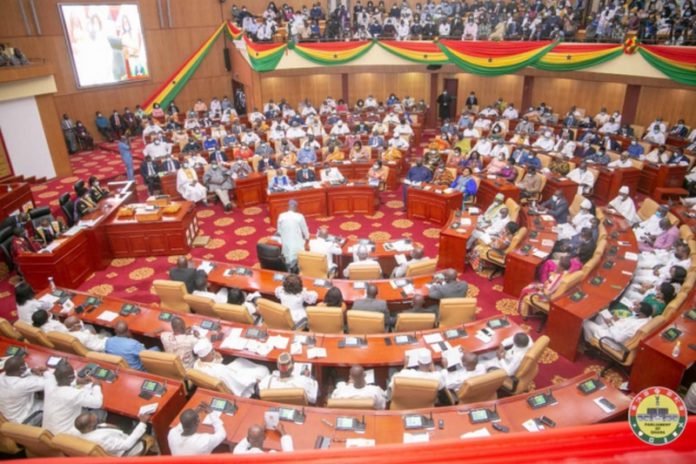The Supreme Court has added the Speaker of Parliament as a defendant in a suit seeking a constitutional interpretation on the immunity from court proceedings granted to Members of Parliament while performing their functions.
A seven-member panel of the court, presided over by Justice Paul Baffoe-Bonnie, gave the order yesterday, after the Speaker of Parliament, Alban Sumana Kingsford Bagbin, filed an amicus curia (friend of the court) to assist the court with information.
The court held that instead of getting involved in the action as amicus curiae, the Speaker of Parliament should be a party to enable him get access to all the documents and processes.
“It is ordered that the Speaker of Parliament should be joined to the action as second defendant and for all the processes be served on him,” the court ruled. The order by the court was pursuant to Rule 45 (4) of the Supreme Court Rules, 1996 (C.I 16), which allows the court, on its own or by a motion by a party, order any other person to be joined as a party to a suit before it.
Suit
The suit was initiated by two individuals in a case that an MP, the Clerk or Speaker of Parliament does not have any immunity if he or she commits an offence “while he is on his way to, attending at or returning from any proceedings of Parliament.”
The plaintiffs — Hilda Mansuwa Kpentey Dongotey and Albert Gyamfi, are asking the court to interpret articles 117 and 118 of the 1992 Constitution, the two constitutional provisions which provide immunity for the Speaker of Parliament, MPs and the Clerk to Parliament.
Counsel for the plaintiffs is Samson Lardy Anyenini. The plaintiffs are seeking a declaration that the Constitution does not protect an MP who commits a crime, whether or not the crime was committed by the MP in his or her line of duty, and, therefore, the police do not need permission from the Speaker of Parliament to arrest such an MP.
Besides, they want a declaration that any act by the Speaker asking the police to seek permission from him before arresting an MP accused of committing an offence is “null, void and of no effect”.
Also, they want a declaration that the constitutional term “attending at or returning from any proceedings of Parliament” stipulated in Article 117 applies only to work in Parliament and not when an MP is engaged in activities in a constituency.
Another relief being sought by the plaintiffs are a declaration that upon a true and proper construction of Article 117 of the 1992 Constitution, a Speaker of Parliament, Clerk or MP is not granted immunity from warrantless arrest, restriction or detention while he is on his way to, attending at or returning from proceedings of Parliament.
Contentious issue
The issue of MPs claiming immunity from court proceedings and processes, with the explanation that they are performing parliamentary duties has become contentious.
Such a situation had led to numerous standoffs between some MPs, Parliament itself, and law enforcement agencies, as well as the courts.
In 2021, the National Democratic Congress (NDC) MP for Madina, Francis Xavier Sosu, who was charged with unlawfully blocking a public road during a demonstration by his constituents for better roads, failed to appear in court to answer the charges, with the excuse that he was on parliamentary duties.
The Deputy Clerk of Parliament also wrote to the Kaneshie District Court that the MP could not be served with the hearing notice due to Article 117 of the 1992 Constitution.
“Pursuant to Article 117 of the 1992 Constitution of the Republic, I am unable to bring the service to the attention of the MP as requested,” the letter, dated November 10, 2021, indicated.
The Speaker of Parliament, Mr Alban Sumana Kingsford Bagbin, also damned the police for attempting to arrest the MP without due regard to the law, particularly articles 117 and 118 of the 1992 Constitution.
Mr Sosu has since been discharged by the District Court. Other cases were when the Cape Coast High Court placed an injunction on James Gyakye Quayson, the NDC MP for Assin-North, until the final determination of a petition challenging his eligibility, the MP went to Parliament to be sworn into office, arguing that the order of the court was not properly served on him as envisaged under the Constitution.
Another case was that of the NDC MP for Bawku Central, Mahama Ayariga, who was on trial over alleged abuse of office. The case against him has, however, been dropped.
It was a trial that generated a lot of public interest due to the clash between the Judiciary and the Legislature.

